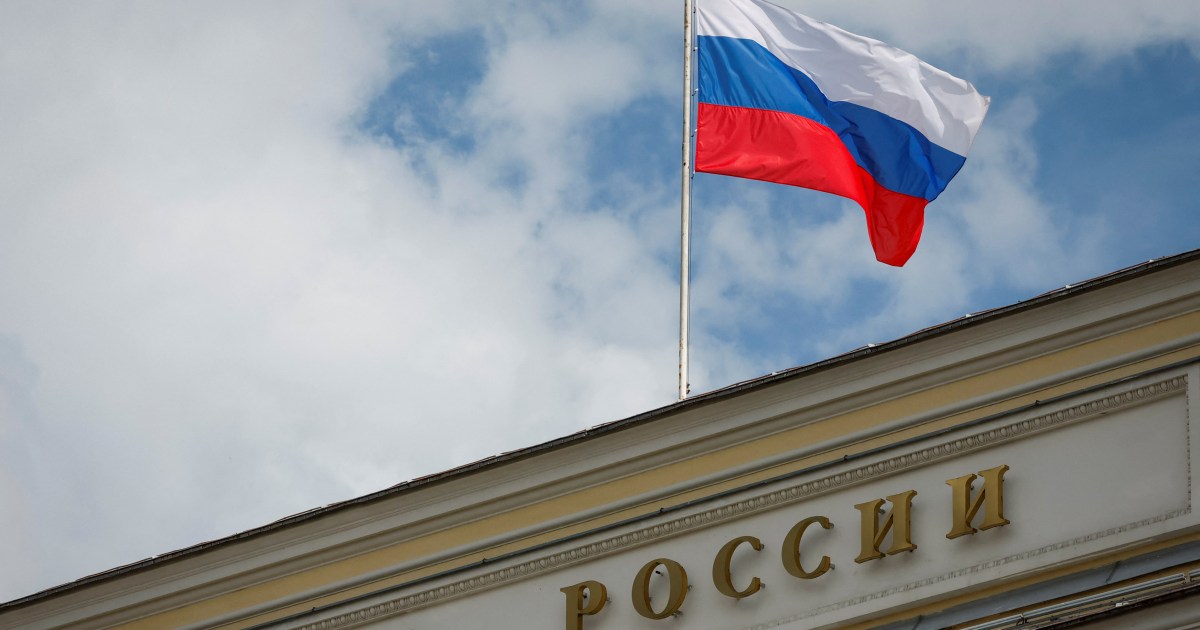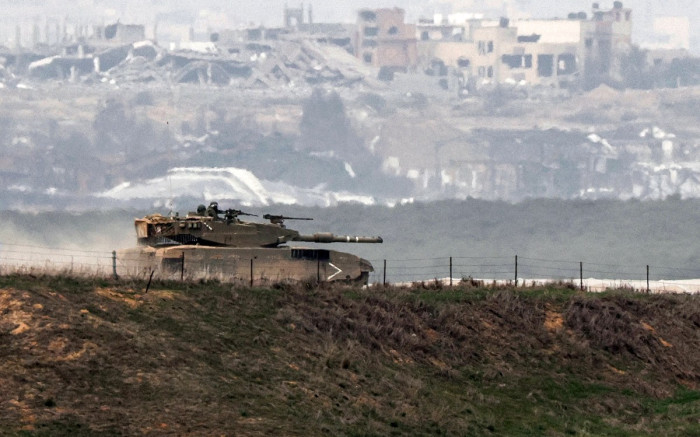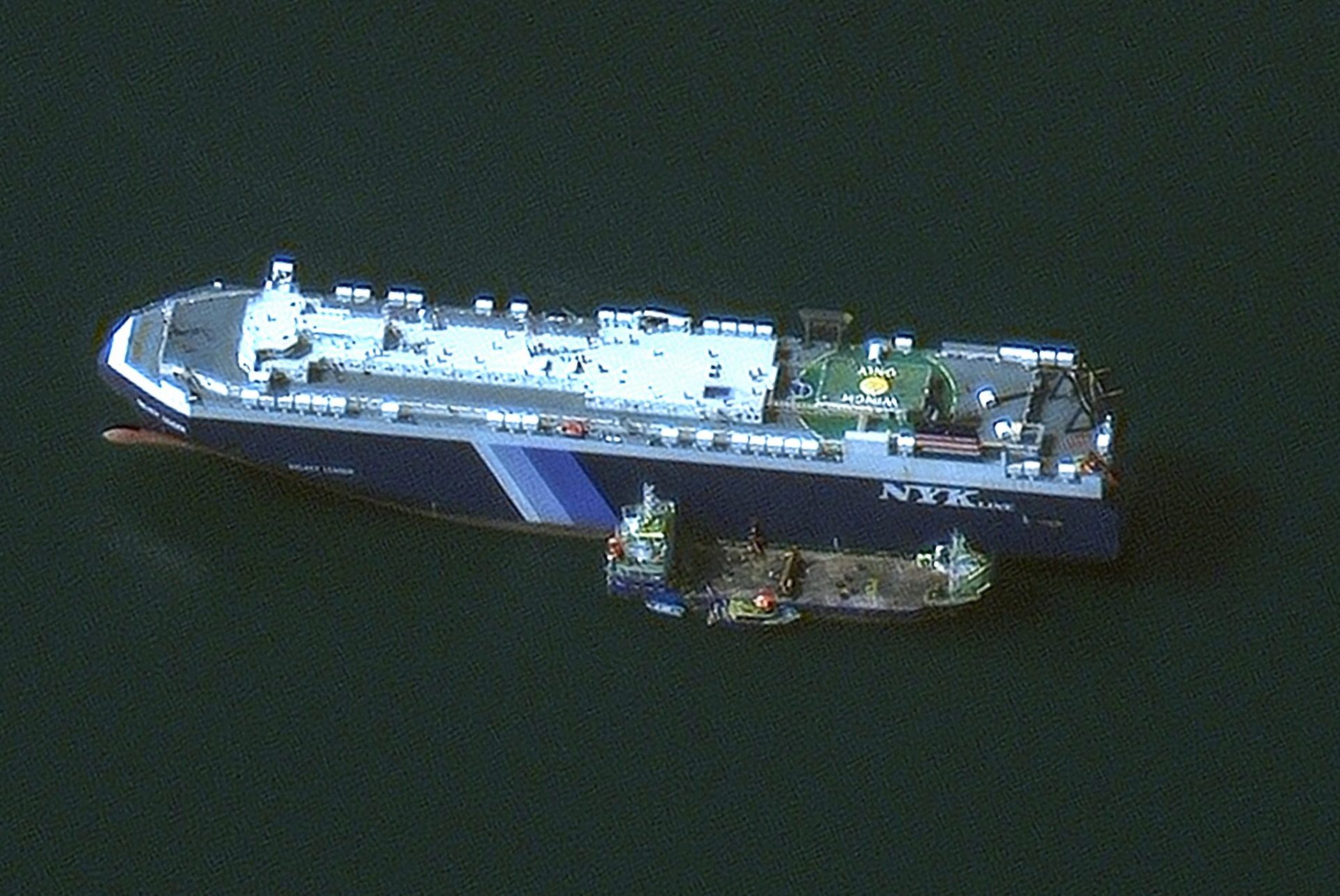
An estimated $350 billion in Russian state assets have been frozen in Western accounts since Russian President Vladimir Putin ordered a full-scale invasion of Ukraine on February 24, 2022. These are not unused funds. In 2023, Belgium-based financial services company Euroclear, which holds 197 billion euros ($214 billion) in such assets through its settlement and clearing function, reported at least 3 billion euros ($3.26 billion) in interest.
Given that sanctions against the Kremlin remain in force and Putin has shown no willingness to negotiate his demand to annex a quarter of Ukraine’s territory or halt his attacks, the question is how these assets will be used to push for an end to the war Whether to help Ukraine resist has become a key question for Kiev’s Western allies.
British Foreign Secretary David Cameron publicly opened the door to the idea last December, declaring: “Instead of just freezing the money, let’s take the money.” [and] Spend it on rebuilding Ukraine.” Meanwhile, Washington has privately floated a plan to seize at least some of the assets, although U.S. President Joe Biden’s administration hesitated on previous European proposals for such measures in 2022.
But actions speak louder than words. The only significant step Belgium has taken so far is to set aside tax revenue from the frozen funds to support Kiev. But dangerous and deadly delays caused by the blocking of direct financial and material aid by Hungarian Prime Minister Viktor Orban and Republican hardliners in the US Congress have made the question all the more urgent.
Ultimately, Washington and Brussels will likely find additional funds for Kiev, but both have already indicated that aid will decline compared to what Kiev has received in the past, even as Russia’s military spending soars. It is estimated that the Kremlin did this budgeted About $140 billion – or seven percent of Russia’s gross domestic product – will be spent on the military in 2024.
And as both Europe and the United States face crucial elections in 2024 that are likely to see calls to further reduce the cost to taxpayers of aid to Ukraine, Russia’s use of frozen funds appears to be on the rise attractive, but also a necessary solution if the West supports Kiev in the coming years.
But the process of actually doing so has sparked significant debate among policymakers, historians, diplomats, academics and international lawyers.
As with the West’s initial sanctions response to Russia’s full-scale invasion, the term “unprecedented” was often dismissed.
Many opponents of seizing Russia’s frozen funds warn that the backlash could be severe for the West because it would set a precedent for states to openly seize other countries’ assets in response to their foreign policy decisions. Ultimately, they fear that this will lead to third countries potentially threatening the West and that this will undermine the so-called “global rules-based order”.
Others warn that it will accelerate countries’ move away from the U.S. dollar, giving U.S. sanctions their extraterritorial reach by jeopardizing access to the central trading instrument of the global financial and trading system, at far greater costs even for Russia than supporting Russia’s allies and partners, except for those who are themselves subject to sanctions. For this reason, powers such as China and India are reluctant to openly support Moscow, and only sanctioned states such as North Korea, Iran and Syria do so openly.
Those calling for hesitation point to the expansion of the so-called BRICS alliance – which Putin has openly said should lead the way in finding an alternative to the dollar. But although Egypt, Ethiopia, Iran, Saudi Arabia and the United Arab Emirates are now nominal members of the bloc, the affiliated BRICS institutions remain largely toothless.
Even the New Development Bank, the most solid institutional creation of the BRICS founding members – Brazil, Russia, India, China and South Africa – remains relatively small. At the end of 2022, the country only had assets of $26 billion and has suspended issuing new loans to Russia.
BRICS members were not only too divided to accommodate When they responded to Russia’s proposal to discuss a new currency at their South Africa summit last year, their fear of losing access to the U.S. dollar was so great that they agreed to bar Putin from attending should refrain from the meeting.
The argument that confiscating Russia’s assets could accelerate dedollarization is shallow. It does not take into account the fundamental flaw underlying a structure such as the BRICS or any other hypothetical political-economic alliance of non-Western countries.
For the major BRICS members not only have different and often competing geopolitical interests – which they occasionally set aside to band together to push back US hegemony – but they also run significant trade surpluses, meaning they export more than they import .
Therefore, their need for credit is secondary to their need to find a safe haven for the income they generate from selling goods to the rest of the world, be it manufactured goods in India or China or raw materials in Russia and Brazil. It’s not that the U.S. dollar and all of Washington’s accompanying laws and regulations are the ideal vehicle for banking these revenues.
But they need deficit markets like the US that import such capital to exploit their profits. And unlike their own currencies, they want currencies without capital controls to ensure that these funds can be transferred abroad. The only real alternative to the US dollar – since it also has no capital controls and is the currency of another large deficit market – is the euro.
If the US and Europe actually act as they should and confiscate Russia’s funds, it could increase the desire of some other countries to move away from the dollar, but it will not eliminate the structural challenges involved.
The second reason for the West’s shyness is that it prefers to talk about operating in a “rules-based system” and portrays Putin and his ilk as the biggest threat to that system. There are arguments that the seizure of Russia’s assets violates the principle of sovereign immunity or is inconsistent with principles or international law unfounded. The move is ultimately a response to Russia’s violation of these principles and will only be held accountable for its actions.
The idea that the international order is based on a set of rules or laws is fallacious. Even if the will were there, no other country would be able to hold Washington accountable for its 2003 invasion of Iraq and the devastating consequences. A precedent that would have increased the cost of this would not be a bad thing.
Reinforcing the principle that unilateral aggression or annexation of territory should result in a weakening of a sovereign’s position under international law is precisely what a just, rules-based order should implement. If the West’s use of its financial power has to make everything right, then so be it.
Time is of the essence as Russia has significantly increased its missile and drone attacks against Ukraine in recent weeks and Putin seeks to further deter Western support for Kiev. Seizing Russia’s frozen assets is not only the most effective way to ensure that Ukraine can continue to resist Putin’s attack, but can also deter future such aggression by any power.
The views expressed in this article are the author’s own and do not necessarily reflect the editorial stance of Al Jazeera.






Recent Comments